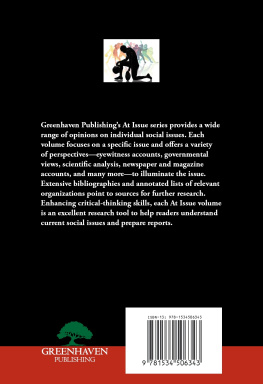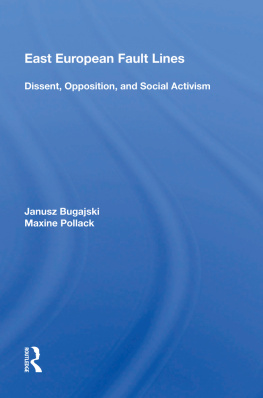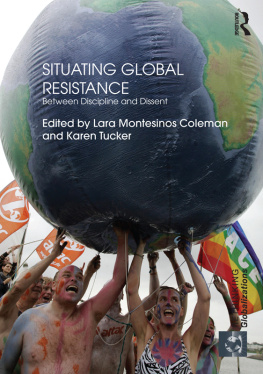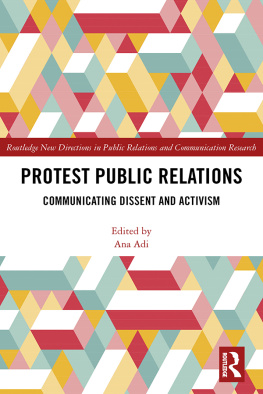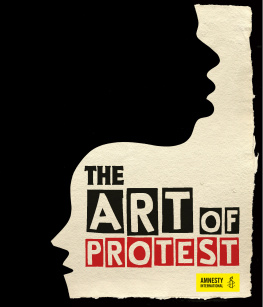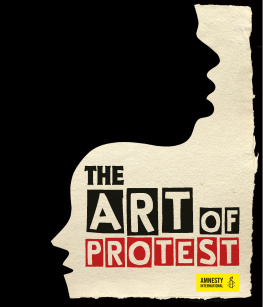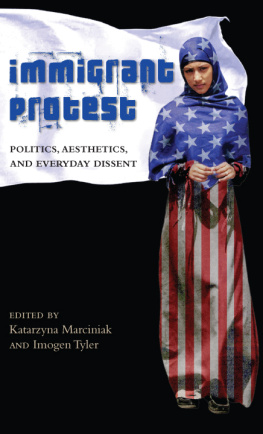
Matrix Activism
Finally a book that goes beyond essentializing critique to offer a subtle analysis of global media activism.
R. Trebor Scholz, The New School, USA
The intersection of virtual and physical spaces at the heart of contemporary political protests is a pivotal element in new practices of activism. In this new and global ecology of dissent and activism, different forces, stakeholders, and spaces, once defiantly discordant, come together to define the increasingly malleable nature and terms of participatory politics and the performance of democracy. This book explores the emerging sites, aesthetics, and politics of contemporary dissent as a critical attempt to foreground their mediation and negotiation in an era of neoliberal globalization. Contemporary forms of media activism occupy deeply ambivalent spaces, which Ardizzoni analyzes using the lens of what she calls matrix activism. Rather than confining the analysis to a single platform, a single technology, or a single social actor, matrix activism allows us to explain the hybrid nature of new forms of dissent and resistance, as they are located at the intersection of alternative and mainstream, non-profit and corporate, individual and social, production and consumption, online and offline.
Michela Ardizzoni is Assistant Professor at the University of Colorado-Boulder, USA. She received her Ph.D. in Media Studies from Indiana University-Bloomington. Her research focuses on global media, connected media practices, and media activism. Her study of Italian television North/South, East/West: Mapping Italiannes on Television was published in 2007.
Routledge Research in Cultural and Media Studies
For a full list of titles in this series, please visit www.routledge.com.
92 Materiality and Popular Culture
The Popular Life of Things
Edited by Anna Malinowska and Karolina Lebek
93 Girlhood, Schools, and Media
Popular Discourses of the Achieving Girl
Michele Paule
94 The Creative Underground
Arts, Politics and Everyday Life
Paul Clements
95 Subjectivity across Media
Interdisciplinary and Transmedial Perspectives
Edited by Maike Sarah Reinerth and Jan-Nol Thon
96 The Rise of Transtexts
Challenges and Opportunities
Edited by Benjamin W.L. Derhy Kurtz and Mlanie Bourdaa
97 Explorations in Critical Studies of Advertising
Edited by James F. Hamilton, Robert Bodle, and Ezequiel Korin
98 Popular Culture and the Austerity Myth
Hard Times Today
Edited by Pete Bennett and Julian McDougall
99 Historicising Transmedia Storytelling
Early Twentieth-Century Transmedia Story Worlds
Matthew Freeman
100 LGBTQs, Media and Culture in Europe
Edited by Alexander Dhoest, Lukasz Szulc, and Bart Eeckhout
101 Matrix Activism
Global Practices of Resistance
Michela Ardizzoni
First published 2017
by Routledge
711 Third Avenue, New York, NY 10017
and by Routledge
2 Park Square, Milton Park, Abingdon, Oxon OX14 4RN
Routledge is an imprint of the Taylor & Francis Group, an informa business
2017 Taylor & Francis
The right of Michela Ardizzoni to be identified as author of this work has been asserted by her in accordance with sections 77 and 78 of the Copyright, Designs and Patents Act 1988.
All rights reserved. No part of this book may be reprinted or reproduced or utilised in any form or by any electronic, mechanical, or other means, now known or hereafter invented, including photocopying and recording, or in any information storage or retrieval system, without permission in writing from the publishers.
Trademark notice: Product or corporate names may be trademarks or registered trademarks, and are used only for identification and explanation without intent to infringe.
Library of Congress Cataloging-in-Publication Data
CIP data has been applied for.
ISBN: 978-1-138-64037-5 (hbk)
ISBN: 978-1-315-63667-2 (ebk)
Typeset in Sabon
by codeMantra
This book is dedicated to Nabil, Adam, Mattia, and Edda
During my research for this book I have been helped, inspired, and supported by many friends and colleagues. Michael Curtin at the University of California Santa Barbara and Barb Klinger at Indiana University have been my source of inspiration since my early years as a graduate student and have continued to provide invaluable advice through the years. At the University of Colorado-Boulder I would like to thank my colleagues in the Department of French and Italian, in particular Elise Bloomfield, Brian Quinn, Cosetta Seno, Suzanne Magnanini, and Masano Yamashita, who have offered their help and suggestions at different stages of my research. My colleagues in the Department of Media Studies, in particular Janice Peck, Andrew Calabrese, Stewart Hoover, and Nathan Schneider, have also provided me with important feedback and support. The Mediterranean Studies Group at the University of Colorado-Boulder has been a critical hub for discussions and stimulating exchanges, and Id like to thank Brian Catlos, Claire Farago, and Cline Dauverd, in particular. Adrienne Russell at the University of Denver has been there for me since the beginning and has provided help and encouragement throughout the writing process. Zala Volcic at Pomona College has been a true inspiration as a scholar and as a friend for many years.
This kind of research would not be possible without the many activists who enthusiastically accepted to discuss their work with me. In particular, Id like to thank Raffaele_Nicolangrisano, Daniele Ongaro, Andrea Segre, Stefano Liberti, Fred Kuwornu, DJ Nio, Alessandro Sanna (Quilo Kg), Almamegretta, Joe Piscatella, and Alaa Basatneh.
On a more personal note, Id like to thank my extended family in Italy for their unconditional love and support through years and distance: Anna, Sandro, Enrica, Lorenzo, Rita, Lorenzo, Silvana, Ivana, Quinto, Filippo, Riccardo, Angela. Finally, my mother Edda has inspired me with her strength, patience, and resilience through it all. My children Adam and Mattia continue to give me immense joy every day and remind me of what matters. And my husband Nabil is the person without whom nothing would be possible.
On November 19, 2014 a group of over fifty mostly young activists, artists, and politicians from Egypt, Turkey, Sierra Leone, New Zealand, Venezuela, North Korea, Taiwan, Mexico, Yemen, Russia, as well as the United States, gathered at Union Market in Washington, DC, for the one-day event titled Fusion RiseUp. Housed in the trendy, urban Union Market, this event featured presentations, conversations, and discussions with todays leading citizen advocates with the goal to transform rising tides of protest into a wave of sustainable change.1 The lineup of speakers included a wide variety of civic actors, ranging from Samantha Powers (U.S. Ambassador to the United Nations), Cory Booker (New Jersey senator), Nadya Tolokonnikova and Maria Alekhina (founding members of the Pussy Riot collective), Wael Ghonim (one of the leading activists of the Arab Spring), and Cansu Yapici (active member of the group Taksim Solidarity, which played a key part in the Gezi protests of 2013). With topics such as the Syrian war, immigrant rights, online bullying, animal advocacy, online privacy, the role of social media in protests, and freedom of speech, Fusion RiseUp aimed to address some of the core concerns that have inspired waves of protests and activism throughout the world in the past decade. The event was organized by Fusion, the new TV and digital network launched by Univision and Disney/ABC in late October 2013 and targeting mostly the English-speaking Latino community. The list of partners behind this initiative was as diverse as the lineup of speakers: from Unicef, the United Nations Foundation, and the California Endowment, to Uber, Ashoka, and Noticias Univision, among others.


